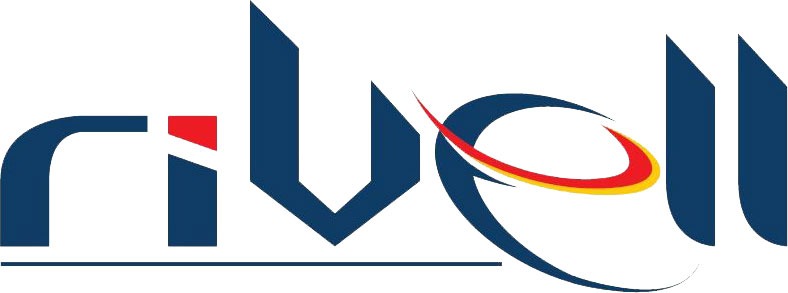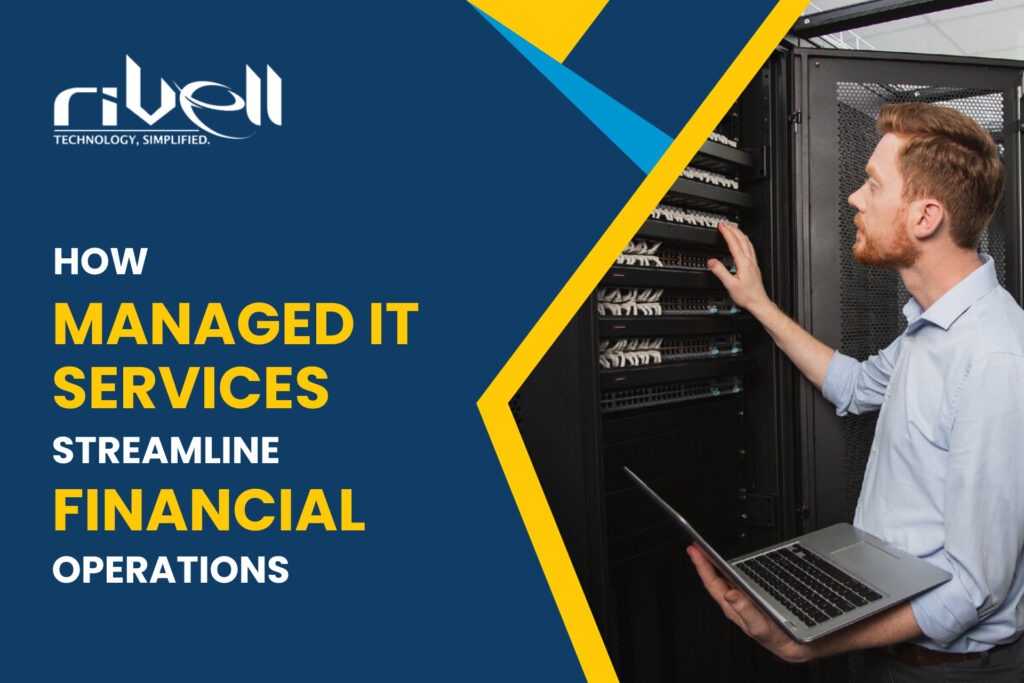In today’s competitive landscape, efficiency is king. And nowhere is that more true than in the realm of finance. Every minute spent on tedious tasks is a minute lost on strategic initiatives that drive growth. 87% of IT decisionmakers in the financial sector look for expertise in an IT vendor. This is where managed IT services come in, offering a powerful solution for streamlining your financial operations and unlocking a new level of agility and profitability.
In the rapidly evolving landscape of modern business, the significance of efficient financial operations cannot be overstated. However, traditional financial processes often find themselves entangled in bottlenecks that hinder productivity and hinder the overall efficiency of financial workflows.
Common bottlenecks in traditional financial operations
1. Manual Data Entry and Processing:
One of the primary bottlenecks in traditional financial operations is the reliance on manual data entry and processing. This not only introduces the risk of errors but is also a time-consuming process that can impede the speed at which financial information is processed.
2. Lack of Real-Time Visibility:
Traditional financial systems often suffer from a lack of real-time visibility into financial data. Delayed reporting and outdated information can hinder decision-making processes, making it challenging for businesses to respond promptly to changing financial scenarios.
3. Inefficient Approval Workflows:
The approval process in traditional financial operations can be cumbersome and slow. Manual approval workflows, involving physical signatures and paper trails, contribute to delays and inefficiencies in the financial decision-making chain.
4. Siloed Systems and Data:
Isolated financial systems and data stored in silos pose a significant bottleneck. In traditional setups, different departments might use separate systems, leading to data fragmentation and making it difficult to obtain a holistic view of the organization’s financial health.
5. Limited Accessibility and Collaboration:
Traditional financial operations often restrict accessibility and collaboration. Physical presence or reliance on specific devices for accessing financial information can hinder the collaborative efforts of financial teams, especially in today’s era of remote work.
6. Compliance Challenges:
Adhering to regulatory compliance is a critical aspect of financial operations. Traditional systems may struggle to keep pace with evolving compliance requirements, leading to potential risks and legal issues for the organization.
Managed IT Services to the Rescue:
By partnering with a managed IT services provider in nj (MSP), you can transform your financial operations from a burden to a strategic advantage. Here’s how:
1. Automation and Efficiency:
Automated workflows:
Repetitive tasks like data entry, invoice processing, and reconciliation are automated, freeing up time for your team to focus on higher-value activities.
Cloud-based solutions:
Access your financial data and applications from anywhere, anytime, on any device, enabling remote work and collaboration.
Integration with financial software:
Seamless integration with your existing accounting and ERP systems eliminates data silos and improves data accuracy.
2. Enhanced Security and Compliance:
Proactive threat detection and prevention:
Advanced security solutions protect your financial data from cyberattacks and ensure compliance with industry regulations.
Regular backups and disaster recovery:
Secure cloud backups and disaster recovery plans ensure business continuity even in the event of unforeseen circumstances.
Data encryption and access controls:
Implement robust data security measures to safeguard sensitive financial information.
3. Scalability and Cost Optimization:
Flexible service plans:
Choose the services that best fit your needs and budget, without the upfront costs of in-house infrastructure.
Predictable monthly fees:
Eliminate the uncertainty of IT expenses with predictable monthly payments for managed services.
Continuous optimization:
Leverage the expertise of your MSP to optimize your IT infrastructure for cost-effectiveness and performance.
4. Improved Visibility and Insights:
Real-time financial reporting:
Access real-time financial data and gain deeper insights into your business performance.
Business intelligence tools:
Utilize advanced analytics tools to identify trends, make informed decisions, and improve financial forecasting.
Expert guidance:
Benefit from the expertise of your MSP to optimize your financial processes and achieve your business goals.
Benefits of Managed IT Services for Financial Institutions
1. Enhanced Cybersecurity
Managed IT Services fortify financial institutions against the escalating threat of cyber-attacks. Robust cybersecurity measures, including encryption, multi-factor authentication, and continuous monitoring, safeguard sensitive financial data, protecting the institution’s integrity and client trust.
2. Proactive Monitoring and Issue Resolution
The proactive monitoring embedded in Managed IT Services ensures that potential issues are identified and addressed before they impact operations. Downtime is minimized, allowing financial institutions to maintain uninterrupted services, crucial for client satisfaction and operational efficiency.
3. Optimal IT Infrastructure Management
Efficient IT infrastructure management is a cornerstone of success. Managed IT Services optimize the performance of servers, networks, and systems, ensuring that financial operations run seamlessly. This results in improved productivity, reduced costs, and a more agile response to industry changes.
4. Scalability for Evolving Needs
Financial institutions operate in a dynamic environment, and scalability is paramount. Managed IT Services provide the flexibility to scale IT resources according to evolving needs, ensuring that technology grows in tandem with the institution’s expansion or changes in business requirements.
5. Regulatory Compliance Assurance
Navigating the intricate landscape of regulatory compliance is simplified with Managed IT Services. These services include tools and processes designed to ensure adherence to industry regulations, reducing compliance-related risks and potential legal consequences.
6. Data Backup and Disaster Recovery
The security of financial data is non-negotiable. Managed IT Services implement robust data backup and disaster recovery solutions, ensuring that critical financial information is safeguarded against unforeseen events. This contributes to business continuity and resilience.
7. Strategic Cost Management
Managed IT Services offer a predictable cost structure, eliminating unexpected expenses associated with reactive IT fixes. This strategic cost management allows financial institutions to allocate resources efficiently, optimizing the return on IT investments.
8. Focus on Core Competencies
With the burden of IT management lifted, financial institutions can redirect their focus to core competencies. Managed IT Services allow teams to concentrate on strategic initiatives, client relationships, and innovative financial solutions without being bogged down by technical complexities.
9. Seamless Cloud Integration
The cloud is a transformative force, and Managed IT Services facilitate seamless cloud integration. This enables financial institutions to leverage the benefits of cloud-based solutions, including enhanced collaboration, scalability, and accessibility from anywhere, fostering a more flexible and efficient working environment.
10. Strategic Technological Roadmap
Managed IT Services provide financial institutions with a strategic technological roadmap. This roadmap aligns IT investments with long-term business goals, ensuring that technology serves as a strategic enabler for growth and competitiveness.
Frequently Asked Questions
1. What is the role of IT in financial services?
IT plays a pivotal role in financial services by providing technology solutions for data security, digital transactions, automation, and efficient management of financial operations. It enhances customer experiences, ensures regulatory compliance, and facilitates innovation in the financial sector.
2. What does an IT managed services company do?
An IT managed services company offers proactive monitoring, maintenance, and support for a business’s IT infrastructure. This includes network management, cybersecurity, data backup, cloud services, and overall IT system optimization. The goal is to ensure the reliability, security, and efficiency of IT operations.
3. What services are essential in the finance industry?
In the finance industry, essential IT services include cybersecurity solutions to protect sensitive data, robust network infrastructure for secure transactions, cloud-based financial management systems, automation of financial processes, and compliance management tools to adhere to regulatory requirements.
4. How do IT managed services contribute to cost savings in finance?
IT managed services contribute to cost savings in finance by reducing the need for in-house IT staff, preventing costly downtime through proactive monitoring, optimizing IT infrastructure to improve efficiency, and providing scalable solutions that align with budgetary constraints.
5. How can a financial institution choose the right IT managed services provider?
Choosing the right IT managed services provider involves considering factors such as experience in the finance industry, expertise in cybersecurity, a comprehensive range of services, scalability, and a proven track record of successful implementations. Conducting thorough assessments and seeking client references are essential steps in the selection process.
6. What is the long-term cost-saving benefit of Rivell’s technology roadmap?
The technology roadmap created by Rivell anticipates future challenges, aligning IT investments strategically. This proactive approach ensures long-term cost savings by avoiding unnecessary expenses and ensuring that technology investments contribute to future success.
7. How can financial institutions get started with Rivell’s cost-effective IT solutions?
Getting started with Rivell is simple. Contact us through our website or give us a call at (856) 603 0000. We will schedule a personalized consultation to understand your unique challenges, discuss budget considerations, and explore how our IT solutions can contribute to your financial success.
Conclusion
By embracing managed IT services, you can streamline your financial operations, improve efficiency, reduce costs, and gain a competitive edge. With your finance team freed from administrative burdens, they can focus on strategic initiatives that drive long-term success. So, if you’re looking to take your financial operations to the next level, consider the power of managed IT services. You’ll be surprised at the transformative impact it can have on your business.
Ready to Streamline Your Financial Operations?
Contact Rivell today to learn how our managed IT services in NJ can help you achieve your financial goals. We offer a comprehensive suite of solutions designed to meet the unique needs of your business.











